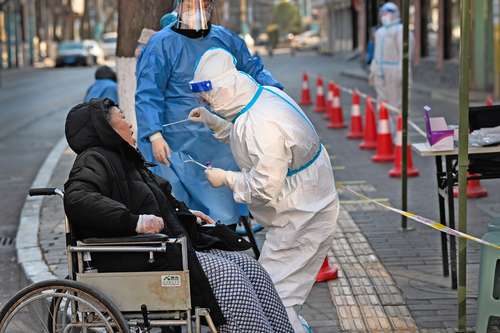The attorney for the Administration, Rigoberto González, revealed that the Ministry of Health (Minsa) can declare mandatory vaccination throughout the national territory.
This, after last December 7, the Minister of Health, Luis Francisco Sucre asked González about the need to have a legal instrument to support the mandatory nature of vaccination against Covid-19, in addition to Law 48 2007.
“The Ministry of Health may order the extraordinary immunization actions that are necessary, which will be mandatory for all residents of the Republic of Panama,” was the textual response of González.
“In response to Law 48 of December 5, 2007, ‘which regulates the vaccination process in the Republic of Panama and dictates other provisions,’ we raise the query if another legal instrument is necessary to support the mandatory nature of [la] vaccination against Covid-19 ″, asked Sucre.
While acknowledging that the Minsa can order compulsory immunization actions for the population, the prosecutor warned that these processes must be carried out “with absolute respect for the dignity, human rights and fundamental freedoms of the people, especially the right to life and personal integrity, and must be proportional and consistent with the risks to public health in question ”.
The attorney pointed out that these extraordinary measures must respond to a specific situation of imminent risk to health, and be justified and based on evidence and scientific principles.
“Additionally, any measure that involves preventive, diagnostic and therapeutic medical intervention, must have the prior, free and informed consent of the person to whom it should be practiced, based on the appropriate information for each case, and the person may revoke said consent at any time, without causing reprisals of any kind, “noted the attorney in response to the minister.
The attorney also made reference to the Constitution, the Sanitary Code, the organic law of the Minsa, laws 68 of 2003 and 48 of 2007 and several international agreements signed by the Republic of Panama, such as the Universal Declaration on Bioethics and Human Rights and the American Convention on Human Rights.
It also cites a statement by the United Nations High Commissioner for Human Rights, Michelle Bachelet, who referred to the mandatory nature of vaccines. Bachelet indicated that although mandatory vaccination is not prohibited, there are limits on when and how they should be applied.
“However, under no circumstances should a vaccine be forcibly administered to people,” he stressed.
Law 48 of 2007 establishes as a health measure of special attention, vaccination against immunopreventable diseases. “This vaccination process will be mandatory throughout the national territory,” says Article 1.
The same law, in its article 10, adds that residents of the national territory, without distinction of religion or race, “have the obligation to keep their vaccination status updated, to keep their vaccination card and to present it when required” .
Likewise, “the Minister of Health is empowered, when he considers that the health of the population is at risk, to order the extraordinary immunization actions that are necessary, which will be mandatory for all residents of the Republic,” indicates the article 14 of Law 48.











